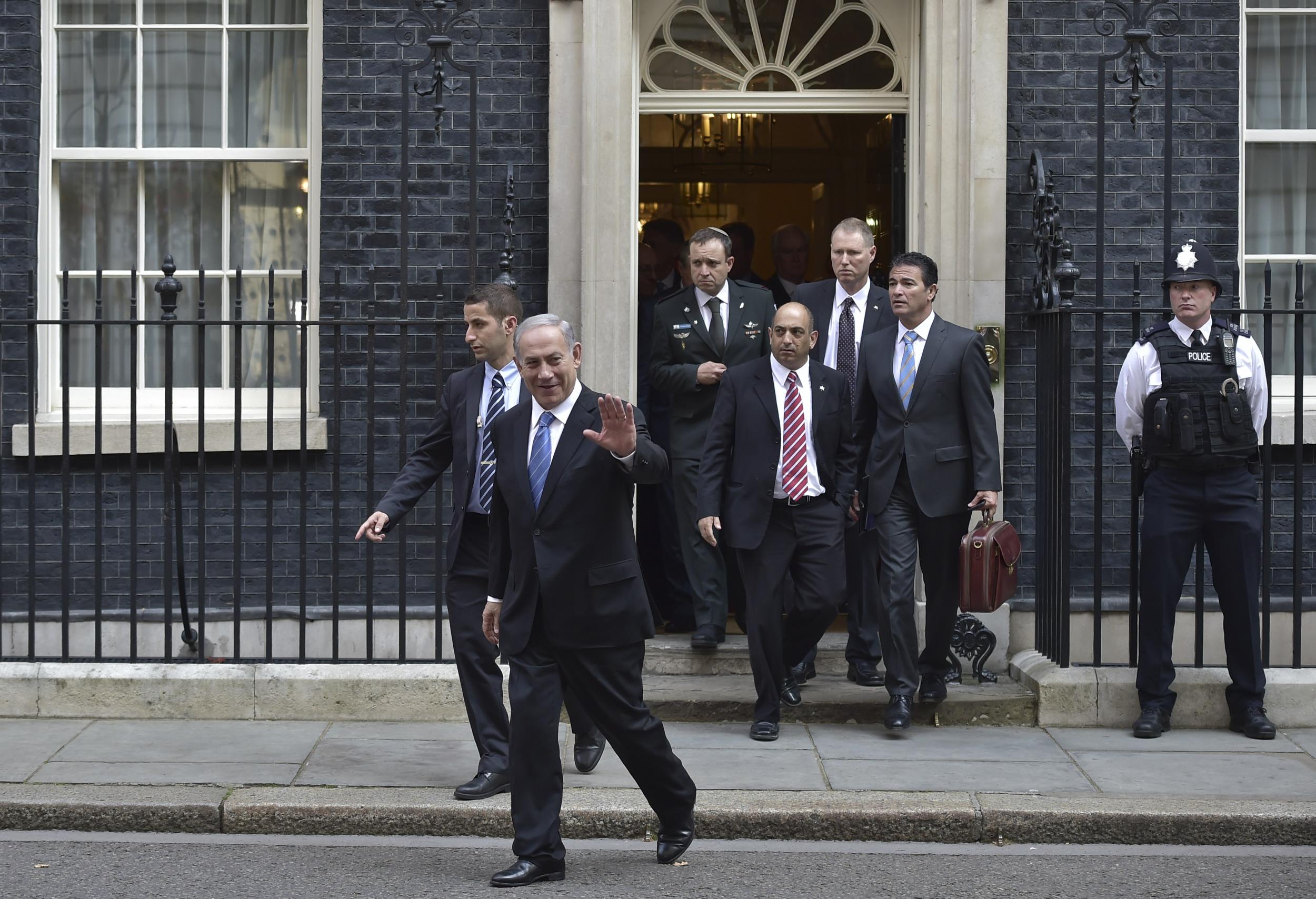Benjamin Netanyahu will take no notice of Theresa May’s warnings – Brexit has taken away her moral high ground
The Israeli Prime Minister will know, as did Turkish President Erdogan, that her stance on settlements is undermined by the fact that post-Brexit Britain will be desperate for business and unlikely to rush to punitive measures such as economic sanctions against his country


“If you asked her about Sinai, she would probably think it was the plural for sinus,” Jonathan Aitken once quipped to illustrate Margaret Thatcher’s supposed lack of knowledge about the Middle East.
In fact, Thatcher did take an interest in the Middle East and there was extensive British involvement in the region during her time, albeit some of it highly contentious. Aitken himself, as one of her ministers, was heavily involved in arms sales to Saudi Arabia worth tens of billions of pounds, in particular the controversial, and lucrative, Al Yamamah project. But her government was also one of the first in the West to establish relations with the PLO and encouraged talks between the Palestinians and the Israelis.
The incursion of Theresa May, who is being spinned by her supporters as the new Thatcher, into the politics of the Middle East has also been highly controversial while showing little by way of statesmanship. She criticised John Kerry’s condemnation of the expansion of the settlements in occupied territories by the Israeli government – just after Britain had voted against the same expansion in the United Nations. The Obama administration pointed out in a measured but cutting response that what the US Secretary of State had said was entirely in line with long-held British policy.
The sniping at Kerry, a staunch ally of Britain while in office, was an attempt by Downing Street to gain approval from the incoming president Donald Trump and his coterie. The Trump team hardly acknowledged this act of genuflection, but the blatant nature of it was widely viewed with amusement, including among the UK’s European allies.
The attempts to please Trump continued with the British government refusing to send senior officials to a peace conference on Israel and Palestine held in Paris. This came after the new US president’s transition team told the French government they did not want the meeting to go ahead. London then went on to block the European Union foreign affairs council from adopting the closing statement of the conference, attended by around 70 counties, which urged both sides to take steps to avert further violence and strive for a two state solution.
May will meet Israeli Prime Minister Benjamin Netanyahu tomorrow in London, the first meeting between the two leaders. Much of the talk will be about trade, with Britain seeking new partners after Brexit – the same need that took her to meet Recep Tayyep Erdogan in Turkey last week. The Middle East peace process will also be on the agenda. “I would expect the Prime Minister to set out the government’s position that we think continued increases in settlement activity undermines trust,” said a Downing Street spokeswoman. This, in fact, was the point Kerry was making forcefully.
But just how much notice does Netanyahu need to take of May’s views on settlements or any other strictures about Israel’s policies towards the Palestinians? He will know, as did President Erdogan, that any stance by her on the moral high ground is undermined by the fact that post-Brexit Britain will be desperate for business and unlikely to rush to punitive measures such as economic sanctions against his country.
Netanyahu will be visiting Trump in Washington next week. The new US president has made appointments and pronouncements in which the Israeli Prime Minister’s right-wing Likud coalition has taken satisfaction, such as promising to move the embassy from Tel Aviv to Jerusalem – something previous US presidents have avoided doing – and sending as ambassador his former bankruptcy lawyer, who has described American Jews who oppose settlements in the West Bank as being worse than Nazi collaborators.
Yet changes have already begun to appear in Trump’s foreign policy. Having, for example, threatened to pull out troops from South Korea and Japan, he has now pledged to ensure that the alliances remain “stronger than ever”. On Israel and Palestine, the White House has warned the Netanyahu government against making “unilateral” announcements on building more settlements. The two-state solution, removed from the Republican party election platform at the behest of the Trump team, is now, say his officials, back on the agenda.
“I think it is designed to chill some of the exuberance of those on the Israeli Right who think they have a blank cheque,” Dennis Ross, a veteran senior diplomat on the Middle East in Bush, Clinton and Obama administrations, told The Jerusalem Post.
“I think that exuberance got their (the Trump team’s) attention. I just don’t think they want any announcements that will surprise them and they’re still in the process of formulating what their policy is going to be. It sounds like they want to convey a pretty blunt message.”
Some of these changes are due to the internal politics at the court of the Donald – the manoeuvres for power between people like Steve Bannon, Jared Kushner and Reince Priebus – and further changes in policy are likely as this evolves. By rushing to ingratiate herself with Trump with unseemly haste, May is in the danger of boxing herself into a corner. It is not a mistake Margaret Thatcher made. She and Ronald Reagan had a “special relationship” far stronger than May will ever have with Trump: but Thatcher was no obsequious follower of Reagan.

Join our commenting forum
Join thought-provoking conversations, follow other Independent readers and see their replies